nn
n
n Jean Audubon left his home when he was only twelvenyears old. His father gave him a shirt, a suit of warm clothes, a cane and hisnblessing, and told him to go into the world and make his fortune. He signednaboard a fishing boat, sailing out of Nantes for the American shores, and bynseventeen he was an able-bodied seaman. At twenty-one he commanded a vessel, atntwenty-five he was captain and owner of his own ship and, slowly, he built upnhis own fleet of fishing boats.
n
n
n
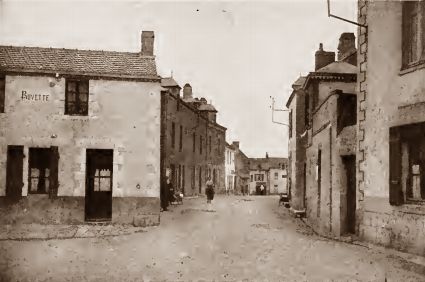 |
| Coueron |
n
n
n
nWith his increasing wealth, he bought a countrynestate at Couëron, near Nantes, and invested in a plantation on St Dominguen(now Haiti). Here he had two children by his quadroon housekeeper, Sanitte, andna son by his Breton mistress, Jeanne Rabin, who was killed in a local uprisingnby African slaves. Sanitte bore another child by him, a daughter, and Audubon,nin anticipation of a further slave uprising, sold off some of his holdings onnSt Domingue and bought land at Mill Grove, near to Philadelphia, with thenproceeds.
n
n
n
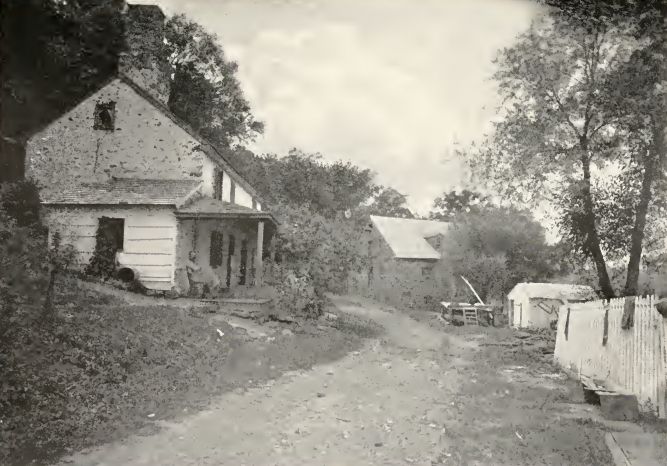 |
| Mill Grove Farm |
n
n
n
nThis was a shrewd move, as soon after the family had to flee to NewnOrleans to escape the slave insurrection that began in 1789. Audubon returnednto Couëron, where he married Anne Moynet Ricordal, a widow some nine yearsnolder than him, who had a small income of her own. He arranged for his childrennto be sent to him from America, had them legally adopted in 1794, and left themnwith their step-mother when he went off to fight for the French in the AmericannRevolutionary war.
n
n
n
nMadame Audubon doted on her charges and positively spoiled Jean-Jacques,nthe son of Rabin, determined to bring him up as a young gentleman, with finenclothes and pockets filled with money. The boy was given free rein to indulgenhis interest in natural history, and would skip school to go collectingnspecimens in the countryside instead, building a collection of feathers,npebbles, birds eggs, nests and flowers, and making crude drawings of his finds.
n
n
n
nHis father intended him to follow him into the military, and at twelve he wasnsent to naval college, but suffered so much from sea-sickness that he soonnreturned home. In 1803, as he approached eighteen, his father bought a falsenpassport for him to join him in America, thereby avoiding conscription into thenFrench army, and he also anglicised his name to John James.
n
n
n
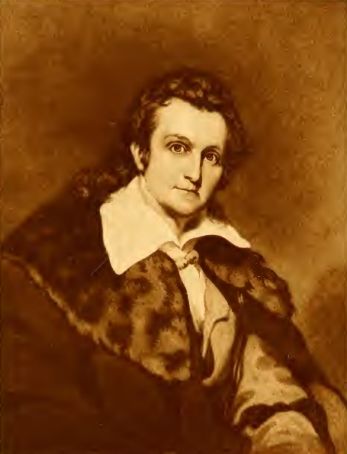 |
| John James Audubon |
n
n
n
nHe suffered fromnyellow fever on arrival in New York and was nursed back to health by Quakernwomen, who taught him to speak English. John James must have made quite annimpression on the Quaker ladies, as Mr Fisher, his father’s Quaker agent,nintroduced the dashing young Frenchman to his daughter, a lady of no meannappearance but one who engendered an unconquerable dislike in John James,nleading him to overstress his interests that the Fishers found undesirable –nplaying music, dancing and hunting – thereby diminishing his allure as anprobable groom.
n
n
n
nAt Mill Grove, John was free to follow these interests to hisnheart’s content and he went about collecting his nature specimens, andnconducting his experiments. He captured, and tied coloured yarns around thenlegs of, local pewees, to prove that they returned to the same place afternmigration, the earliest incidence of bird-ringing in American ornithologicalnhistory.
n
n
n
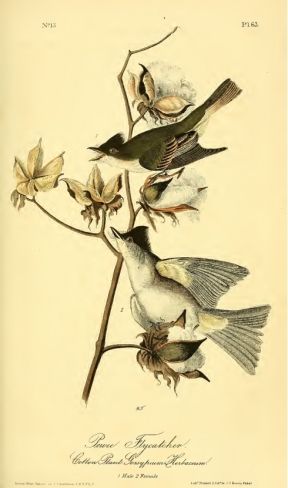 |
| Pewee Flycatchers |
n
n
n
nA few months later, he learned that an Englishman, Mr Bakewell, hadnbought Fatland Ford, the next-door farm, and that Mr Bakewell had fine pointerndogs and even finer daughters. Mr Bakewell left his card and an invitation tonhunt for John Audubon, but the Frenchman’s prejudice against the Englishn(Audubon senior had once been an English prisoner-of-war during thenrevolutionary war), forced his reluctance to call on this neighbour.
n
n
n
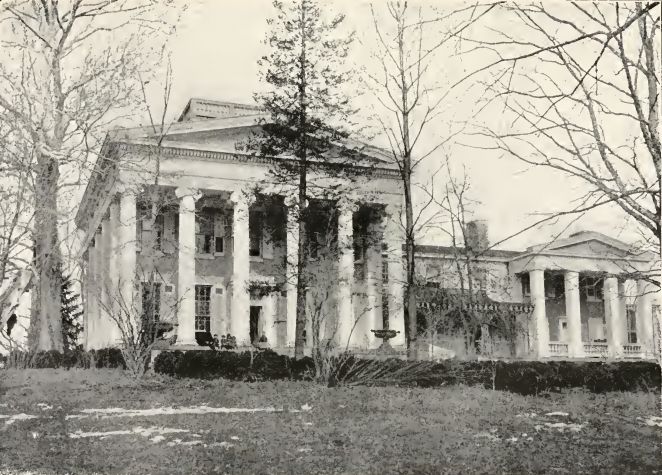 |
| Fatfield Ford Mansion |
n
n
n
nHowever,nout shooting grouse one frosty morning, their paths crossed and the Frenchmannfound himself charmed by the Englishman, with his genteel manners, finenmarksmanship and his excellent pointers, and promised to call upon him soon.nThis he did, but Mr Bakewell happened to be out that afternoon, so John wasnshown into the parlour of the Fatland mansion to await his return, and where henwas entertained by Lucy, one of the beautiful daughters. It was love at firstnsight.
n
n
n
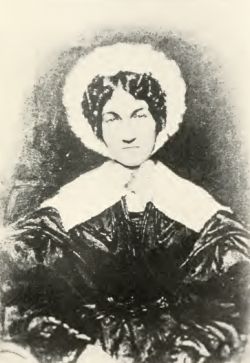 |
| Miss Lucy Bakewell |
n
n
n
nThey shared the same interests, particularly a love of the outdoors, andnwhile Lucy helped John to improve his English, he taught her drawing. But therenwas a cloud on the horizon, in the shape of one M da Costa, sent from France tonbe ‘partner, tutor and monitor’ to the young master. John was far fromnpleased with what he felt was da Costa’s interference but the real troublenbegan when da Costa made it know that Miss Bakewell was far too far down thensocial scale to be a suitable match for John.
n
n
n
nThe disgruntled John demanded anletter of credit from da Costa to cover the cost of passage to France, receivednwhat he thought he had requested and set out, in the midwinter weather, on thenthree day walk to New York. When he arrived, he went to Kanman, the financier,nonly to be told that the letter was, in fact, a suggestion that the young mannbe seized and carted off to China. Infuriated with da Costa’s treachery, Johnnborrowed the price of the sea voyage from a friend, and sailed from the Hook,non board the Hope, bound for Nantes.
nnn
n
nnn
nTomorrow – Audubon begins his great work
nnn
n
nnn
n
